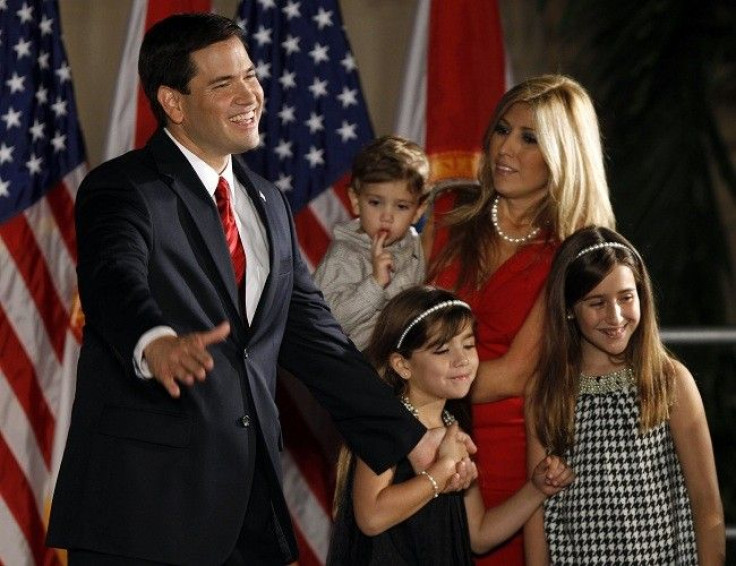Marco Rubio’s Credibility Questioned by Lies About When Parents Fled Cuba

Republican Senator Marco Rubio, a favorite of the Tea Party and a rising star in the GOP, admitted that his parents fled Cuba long before the rise of Fidel Castro. Previously, the Florida lawmakers had claimed that his family escaped Cuba just after Castro seized power in the island country, often describing himself as a “son of exiles.”
The Washington Post reported that an examination of immigration and citizenship documents revealed that Rubio’s parents came to the U.S. in May 1956, more than two-and-a-half years before Castro overthrew the Havana government and established a Communist state.
The credibility of Rubio, who was considered a potential 2010 Republican vice presidential candidate for his appeal to Hispanics, may now be in jeopardy.
He had often used the narrative of his parents’ escape from Communism as a compelling theme in his public speeches. He had become the first Cuban to become speaker of the Florida House, prior to becoming U.S. Senator last year.
Rubio’s senate office confirmed that his parents entered the U.S. in 1956, but added that “while they were prepared to live here permanently, they always held out the hope and the option of returning to Cuba if things improved.” Rubio’s parents did indeed return to their island homeland a few times after Castro took over in order to “assess the situation with the hope of eventually moving back,” the office said.
In response to the gathering controversy, Rubio told reporters: “I’m going off the oral history of my family,” he said. “All of these documents and passports are not things that I carried around with me. [My parents] were from Cuba. They wanted to live in Cuba again. They tried to live in Cuba again, and the reality of what it was made that impossible.”
In a column for Politico.com, Rubio wrote: If The Washington Post wants to criticize me for getting a few dates wrong, I accept that, while adding that he did not do so for political gains.
He also said the Post made some outrageous allegations.
To call into question the central and defining event of my parents' young lives -- the fact that a brutal Communist dictator took control of their homeland and they were never able to return - is something I will not tolerate, he wrote.
He also denied that the gaffe in dates would hurt him with voters.
They voted for me because, as the son of immigrants, I know how special America really is, he added.
Speaking to the Miami Herald, Rubio defended himself yet again.
I didn’t lie about the date. I wasn’t aware of it,” he said.
“It’s irrelevant to the central narrative. The date doesn’t really add anything. It doesn’t embellish anything. The date is less relevant than the experience, the experience of people who came here to make a better life and who could never go back.”
However, Democrats have already started taking potshots at Rubio.
Matt Canter, a spokesman for the Democratic Senatorial Campaign Committee, said in a statement: “Marco Rubio has a chronic credibility problem. We know he’s a Tea Partier who wants to dismantle Medicare and cut Social Security, but the latest bombshell confirms that Rubio seriously struggles to tell the truth and can’t be trusted.”
George Gonzalez, a Cuban-American political science professor at the University of Miami, was also critical. He told the New York Times: “Every Cuban-American knows when their parents arrived and the circumstances under which they arrived. That’s part of the Cuban exile experience, the political and psychological trauma of it. So the idea that he was murky on those does not cut ice.”
He added: “To my father and grandparents, if you came before the [Castro] revolution, it puts you in a different category.”
© Copyright IBTimes 2024. All rights reserved.











